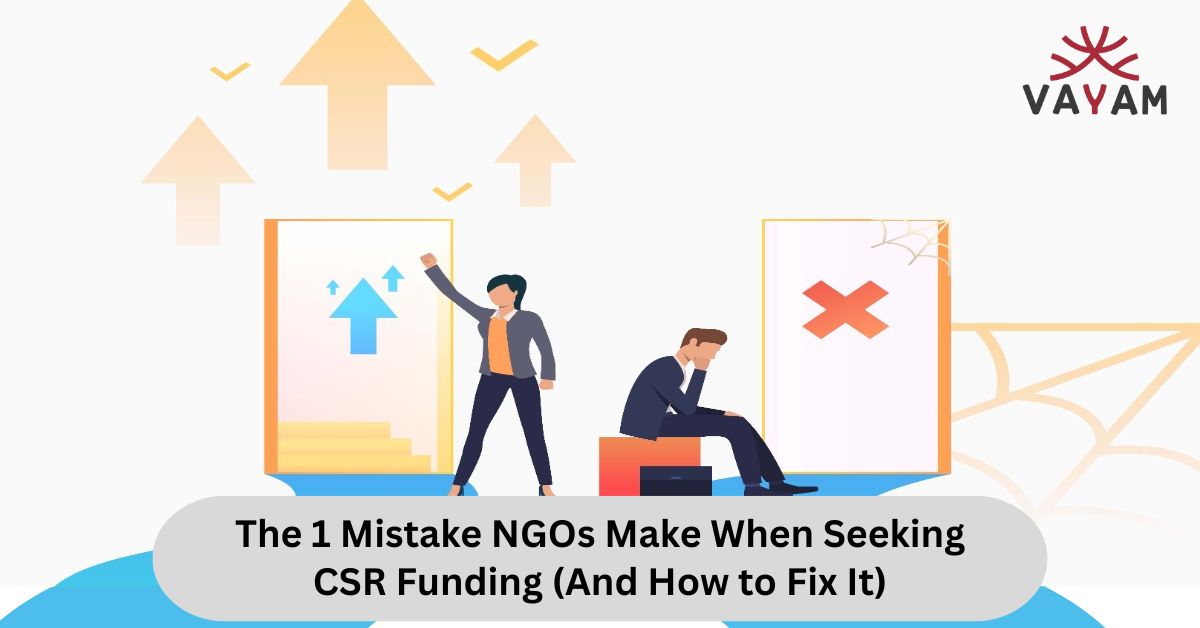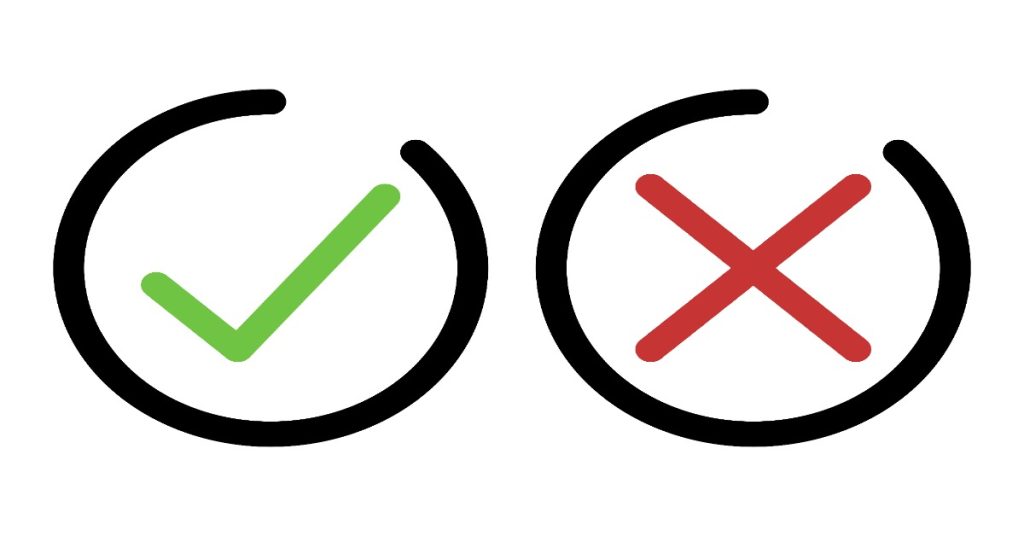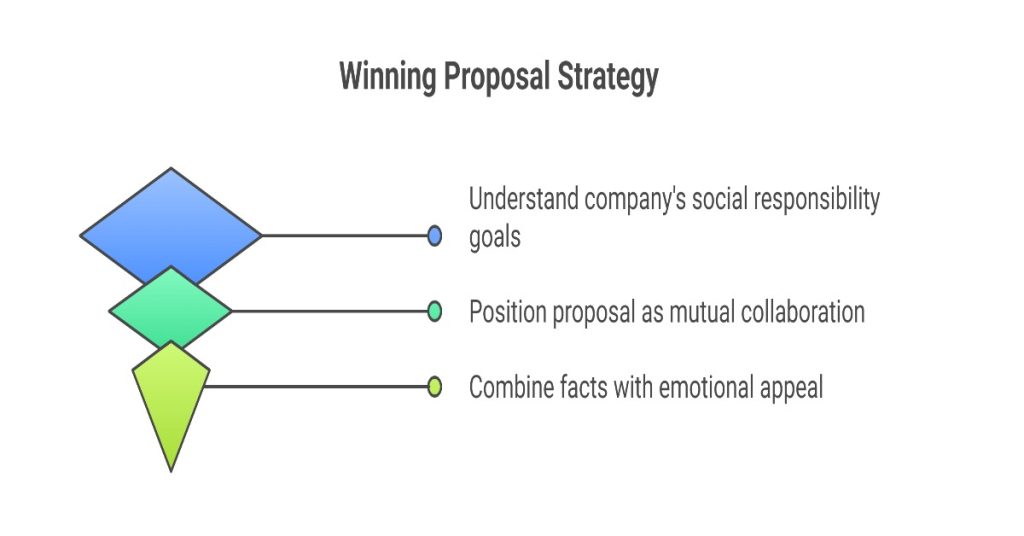
Corporate Social Responsibility (CSR) funding is a lifeline for many NGOs. It helps them run programs, support communities, and create real change. But here’s the hard truth—most NGOs struggle to secure CSR funding because of one critical mistake.
If you’ve ever submitted a proposal and heard nothing back, or if you feel like your NGO is constantly overlooked despite doing great work, this blog is for you. We’ll break down the biggest mistake NGOs make when approaching CSR funding and give you a clear, actionable solution.
Why CSR Funding Feels Like an Uphill Battle
Before we get into the mistake, let’s talk about why securing CSR funding is so tough.
High competition: Thousands of NGOs apply for the same funding.
Strict corporate guidelines: Companies have specific focus areas.
Lack of visibility: Many NGOs don’t know how to present their work effectively.
But the biggest issue? Most NGOs fail to align their proposal with what corporations actually want.
The 1 Mistake: Focusing on Your Needs Instead of Their Goals
Here’s the harsh reality—corporations don’t fund NGOs out of charity. They fund projects that align with their business values, brand image, and long-term goals.
Yet, most NGOs make this fatal error:
They write proposals that talk about their own needs instead of showing how their project benefits the company.
What This Looks Like in Practice
Weak Proposal: “We need funding to support 500 underprivileged children with education.”
Strong Proposal: “By supporting our education program, your company will directly contribute to SDG 4 (Quality Education), improve brand reputation as a socially responsible leader, and engage employees through volunteer opportunities.”
See the difference? The first approach makes it about the NGO. The second makes it about the company’s impact.
Why Corporations Reject NGO Proposals
If you’ve faced rejection, here’s what likely happened:
1. No Clear Connection to CSR Goals – Companies have set focus areas (education, healthcare, environment, etc.). If your project doesn’t fit, they won’t consider it.
2. Lack of Measurable Impact – Vague statements like “we help communities” don’t work. Corporations want data—numbers, outcomes, and ROI.
3. Ignoring Brand Benefits – Companies want visibility, employee engagement, and positive PR. If your proposal doesn’t offer these, they’ll pass.
4. Poor Storytelling – Dry, technical proposals get ignored. Emotionally compelling stories with real impact get attention.

How to Fix It: The 3-Step Winning Proposal Formula
Now that you know the mistake, here’s how to fix it. Follow this structure, and you’ll dramatically increase your chances of securing CSR funding.
Step 1: Research the Company’s CSR Priorities
Before writing a single word, study the company’s CSR policy.
Visit their website (look for a “CSR” or “Sustainability” section).
Check past projects they’ve funded.
Align your proposal with their focus areas.
Example: If a company focuses on women’s empowerment, don’t pitch a healthcare project—tailor your education or skill-building program to women and girls.
Step 2: Frame Your Proposal as a Partnership (Not a Donation)
Corporations don’t want to be seen as ATMs. They want partnerships. Show them:
How their brand will benefit (media coverage, employee volunteering, social media visibility).
The long-term impact (sustainability of the project).
Why you’re the best partner (your NGO’s track record, transparency, and success stories).
Step 3: Use Data + Emotion to Make Your Case
Numbers convince, but stories connect. Your proposal should have:
Hard Data – “Our program has educated 1,200 children with a 92% retention rate.”
Human Stories – “Meet Priya, a 12-year-old who went from child labor to top of her class because of this program.”
Clear Call-to-Action – “With your support, we can scale this to 5,000 children by 2025.”

Avoid These Common Proposal Killers
Even with a great approach, small mistakes can ruin your chances. Watch out for:
Typos & Sloppy Formatting – First impressions matter.
Overly Long Proposals – Keep it concise (1-2 pages max for initial pitches).
No Follow-Up Plan – Companies get hundreds of proposals. Follow up politely.
Final Thoughts: Shift Your Mindset to Win CSR Funding
The key takeaway? Stop begging for funding—start offering value.
Corporations fund NGOs that help them meet their own goals. If you can show them how your project does that, you’ll stand out from the crowd.
Your Action Plan:
1. Research – Identify companies that align with your cause.
2. Reframe – Write proposals that highlight their benefits, not just your needs.
3. Engage – Follow up and build relationships, not just one-time requests.
Do this, and you’ll see more approvals, bigger grants, and long-term partnerships.
Read More
Apply Online for CSR Funding: Step-by-Step Guide
Corporate Social Responsibility Guide: Best Practices, Implementation Strategies, and Reporting Frameworks
How to Gain Attention of CSR-Focused Brands for Your NGO?
Need Help Crafting a Winning CSR Proposal?
If you’re tired of rejections and want a proven template that gets results, drop a comment or DM us. We’ve helped NGOs like yours secure 6- and 7-figure CSR grants—and we can help you too.
